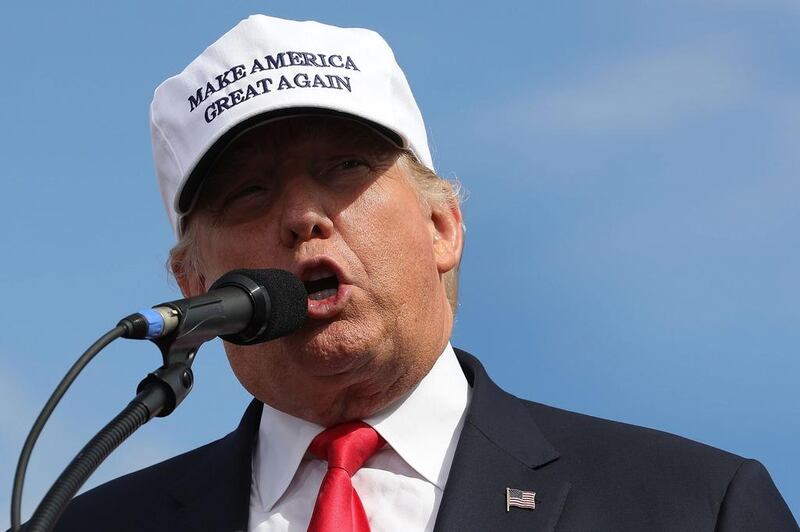A victory for Donald Trump in the November 8 presidential election would threaten the global image of the United States and send the $20 trillion valuation of its brands into decline, a London-based consultancy has said.
The US currently has by far the highest “national brand value”, a measure of the combined worth of a country’s brands, Brand Finance said in research published yesterday.
It also ranks as the 11th strongest nation brand globally, according to the consultancy’s 2016 Nation Brands report, published this week.
But success of the divisive Republican candidate in the presidential poll could send “brand USA” into decline, because of Mr Trump’s controversial stance on ethnic issues and perceived protectionist attitudes towards business, the consultancy said.
“If [Trump] does get into power we could expect to see the US nation brand value go into reverse,” said Robert Haigh, the marketing and communications director at Brand Finance in London.
Mr Trump has made a string of controversial remarks about groups including Muslims and Mexicans, while a 2005 recording recently emerged in which he was heard making a series of lewd remarks about women.
“He’s bad from a reputational point of view for the US, because it just sends out all the wrong signals to ethnic minority groups,” said Mr Haigh.
“But then also he has combined that xenophobia and hostility with business unfriendliness and protectionism. He’s made a lot of noise about companies that send their jobs and investment offshore.”
According to Brand Finance, the US national brand value currently stands at $20.5tn, a 4 per cent increase on last year. The US “nation brand effect” – the proportion of the national brand value that is directly derived from the companies’ American heritage – stands at almost $3.5tn.
But next year’s numbers could look very different whether or not Mr Trump’s presidential bid is successful, said Alex Haigh, the nation brand director at Brand Finance.
“There’s obviously the damage that has been made just by the virtue of him being popular. The fact that he’s almost level pegging in the polls with Hillary Clinton shows that there’s a fairly large swath of the American public who are anti-immigrant, anti-trade and anti-foreign investment,” he said.
“So lots of people will be looking at that and thinking: ‘Even if Donald Trump doesn’t get in, my business isn’t welcome here’.”
Mr Haigh also pointed to a trend of “resurgent nationalism” in the UK, given the Brexit vote in June to leave the European Union.
The UK’s national brand value slipped by 2 per cent to $2.9tn in Brand Finance’s ranking, largely due to the devaluation of the pound following the Brexit vote.
But the UK’s brand strength – based on factors like its worldwide image and perceptions about tourism, investment, governance and security – actually improved, ranking fifth place globally this year, compared to 11th in 2015.
Brazil – despite hosting the Olympic Games last summer – was one of the poorest performing nations in Brand Finance’s ranking. The nation registered a 30 per cent decline in its national brand value in the last year, the figures show.
Mr Haigh said that while perceptions of tourism in Brazil had risen slightly, the overall economic situation was bleak, and the country was still grappling with unravelling scandals over alleged political corruption.
“The Olympics can only do so much, and the economic situation in Brazil is dire,” said Mr Haigh. “These sporting events simply don’t have that bang for the buck.”
business@thenational.ae
Follow The National's Business section on Twitter





